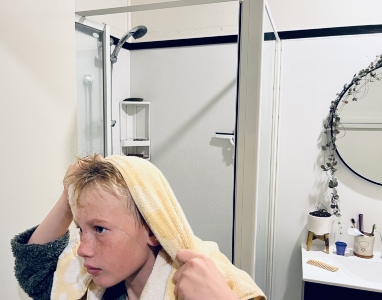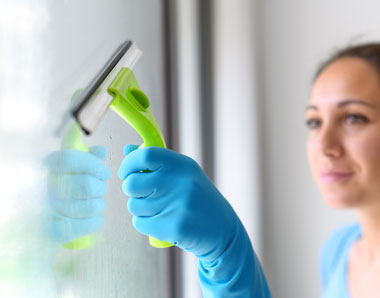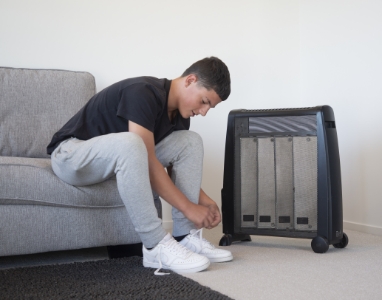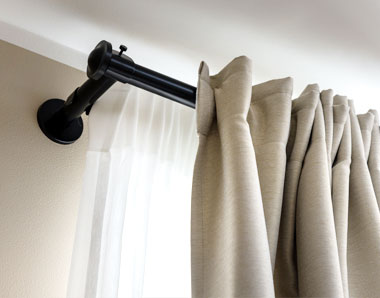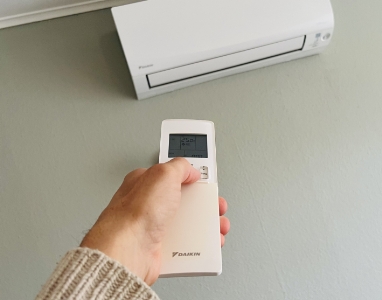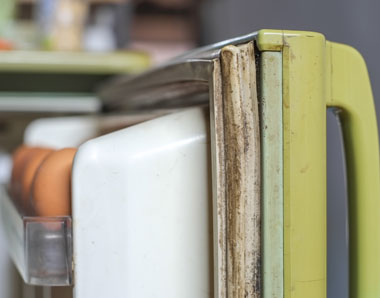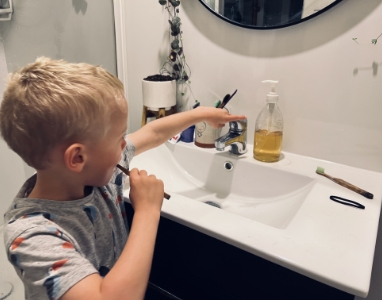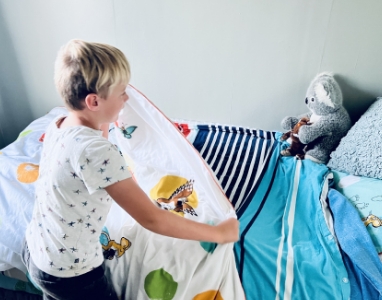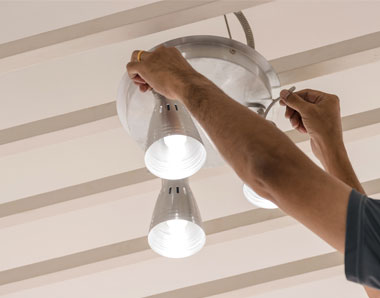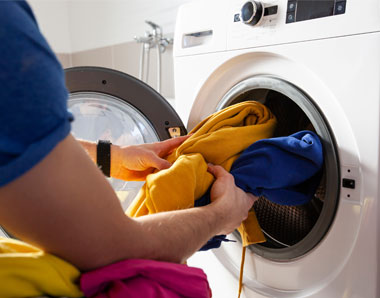Energy saving tips
There are lots of simple things you can do to help make your home drier and more energy efficient. Some Kiwis even find they save hundreds of dollars a year by implementing energy saving tips.
Take a look at our top tips below and see where you can make positive changes for your home.
Take shorter showers
Did you know 10 minute long shower can add one whole litre of moisture to your bathroom? A shorter shower can reduce moisture. Also, a family of four can save $450 a year by reducing their daily showers by five minutes.
Reduce moisture
The more moisture in your home, the longer it takes to heat, which in turn uses more energy. Luckily, you can reduce excess moisture by:
- Opening up doors and windows to allow fresh air in (try ventilating your home for at least 15 minutes a day)
- Using a squeegee on window condensation to reduce mould growth and moisture build up
- Drying your washing outside – just one load of washing drying inside creates up to 5 litres of moisture.
Only use power in rooms you’re in
- Switch off any lights when leaving a room
- Only use heaters or heat pumps to warm the room you’re in, remembering to shut doors, plug gaps and close curtains to trap the heat in.
Hang double-layered curtains
About 30% of your home’s heat is lost through windows and doors, so having good quality, double-layered curtains creates a thermal barrier, helping prevent heat loss and saving you money. For the most effective barrier, curtains should be hung from the top of the rail down to floor level.
Use heat pumps efficiently
- Setting your heat pump to ‘auto’ can waste energy and lead to higher energy costs. Instead, use the timer to warm the room just before you get home, and switch if off when you no longer need it
- Set the thermostat to above 18C (to combat damp and mould) and below 21C (to save power)
- To run efficiently, clean your heat pumps filters regularly, and keep the outside evaporator clear of anything that could prevent it running properly.
Repair broken fridge/freezer door seals
Fridges and freezers with broken or loose door seals are more expensive to run. Also, save energy and dollars by making sure you don’t have fridges/freezers that aren’t being used fully. Fridges and freezers with broken or loose door seals need to use more energy to keep them cold, making them more expensive to run.
Fix dripping taps
Fix dripping taps and save energy. A dripping hot water tap can cost you up to $100 a year.
Throw on extra blankets
An extra blanket or two on the bed can keep you just as warm as an electric blanket but save you energy and money. Keep in mind that woollen blankets offer better thermal protection than polyester fleece blankets.
Swap halogen bulbs for LEDs
LED lightbulbs use a lot less electricity and last longer than halogen bulbs, so switching them out could save you energy and money.
Make the most of off-peak electricity
For energy cost savings, use appliances such as dryers at off-peak electricity times. Most electricity retailers (the company who sends your power bill) offer lower costs on electricity during off-peak times – this is when less people are using power, typically between 11am – 5pm and 9pm to 7am. Using appliances such as washing machines and dryers during off-peak times can save you money.

